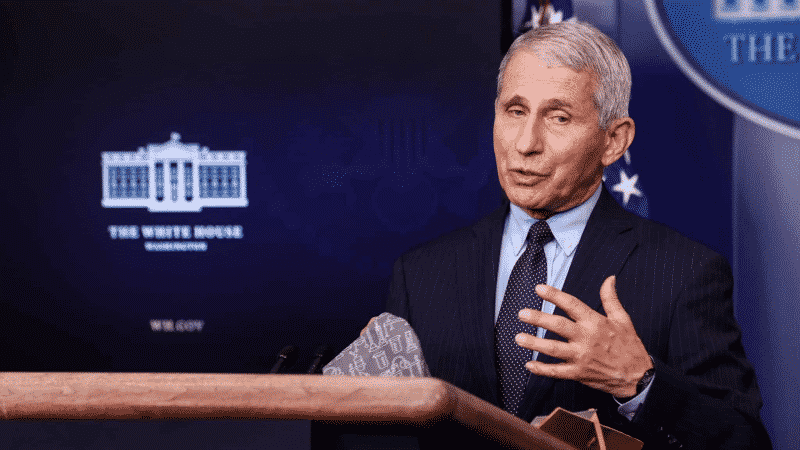Anthony Fauci, the top U.S. infectious disease doctor, hopes U.S. regulators will make a quick decision to lift a pause on the Johnson & Johnson vaccine and get that vaccine “back on track,” he said in an interview with Reuters on Thursday.
His comments come a day after a panel of advisers to the U.S. Centers for Disease Control and Prevention (CDC) delayed a vote on whether to resume the J&J shots for at least a week, until it had more data on the risk.
The United States earlier this week decided to pause distribution of the J&J vaccine to investigate six cases of a rare brain blood clot linked with low platelet counts in the blood.
Fauci said the pause was “an indication that the CDC and the Food and Drug Administration take safety very seriously. I hope they make the conclusion of this quickly, and get back on track,” he said. “And I believe they will.”
Fauci, who is director of the National Institute of Allergy and Infectious Diseases and chief medical adviser to the White House, said he worried about the effects of a prolonged delay.
“The concern is that the longer you draw it out, the more there will be concern about not only that vaccine but it might even have an impact on vaccine hesitancy in general,” he said.
Once back “on track” he said, “I think we’ve just got to continue to emphasize that this is a very efficacious vaccine and could be used, and be very, very valuable on the global scene.”
The blood clots associated with the J&J vaccine bear close resemblance to cases seen in Europe with the AstraZeneca PLC vaccine, and some countries in Europe are already backing away from using both.
Denmark on Wednesday announced it would stop using AstraZeneca’s vaccine altogether.
Asked if such moves may be premature, Fauci said, “I think in many respects it is,” at least until countries find out whether or not the events are truly occurring at a higher rate than would normally occur in the population.
The blood clots have not been seen with the Moderna Inc and the BioNTech/Pfizer Inc vaccines, which are made using a different type of technology called mRNA. Fauci said countries that do not have other options may have to weigh the risks of the vaccine versus the risk of COVID-19, which has also been linked with the same type of brain blood clots.
“If you have alternative vaccines, fine, but if you don’t, you may need to say you know, it’s a very, very small risk,” he said. “That will be a judgment call that will be made in the future.”
(Reporting by Julie Steenhuysen in Chicago and Mike Erman in Maplewood, New Jersey; editing by Peter Henderson and Rosalba O’Brien)

























 Continue with Google
Continue with Google